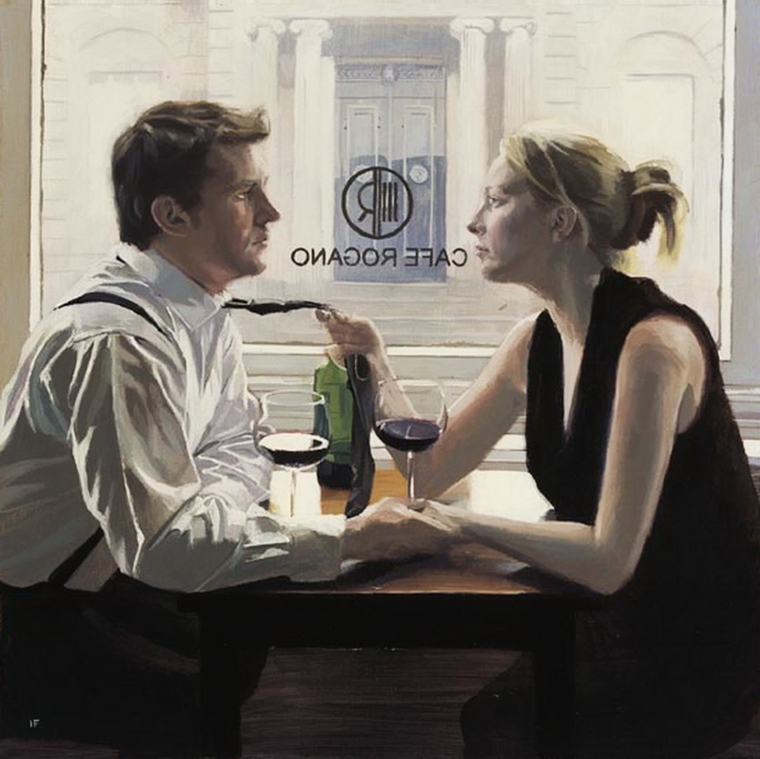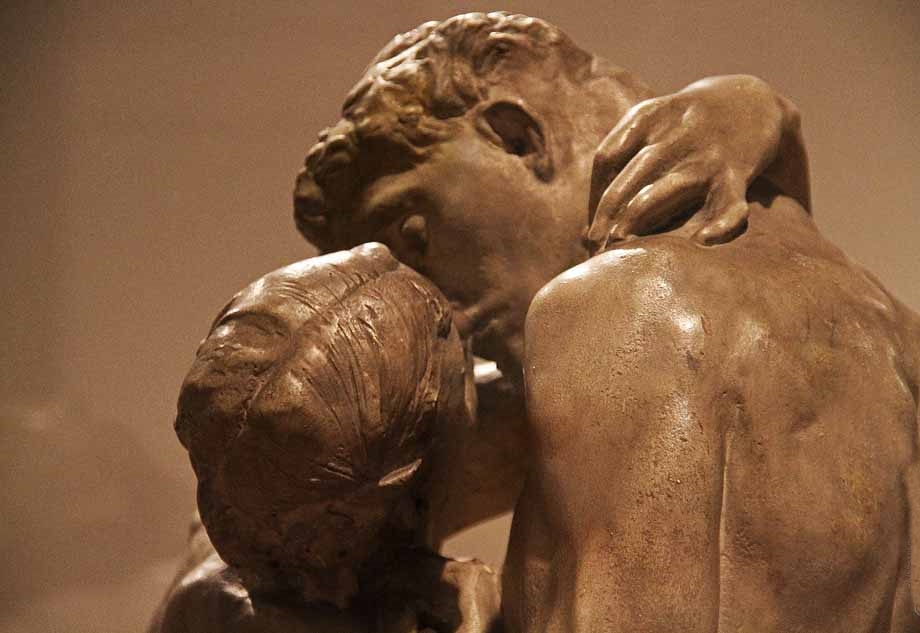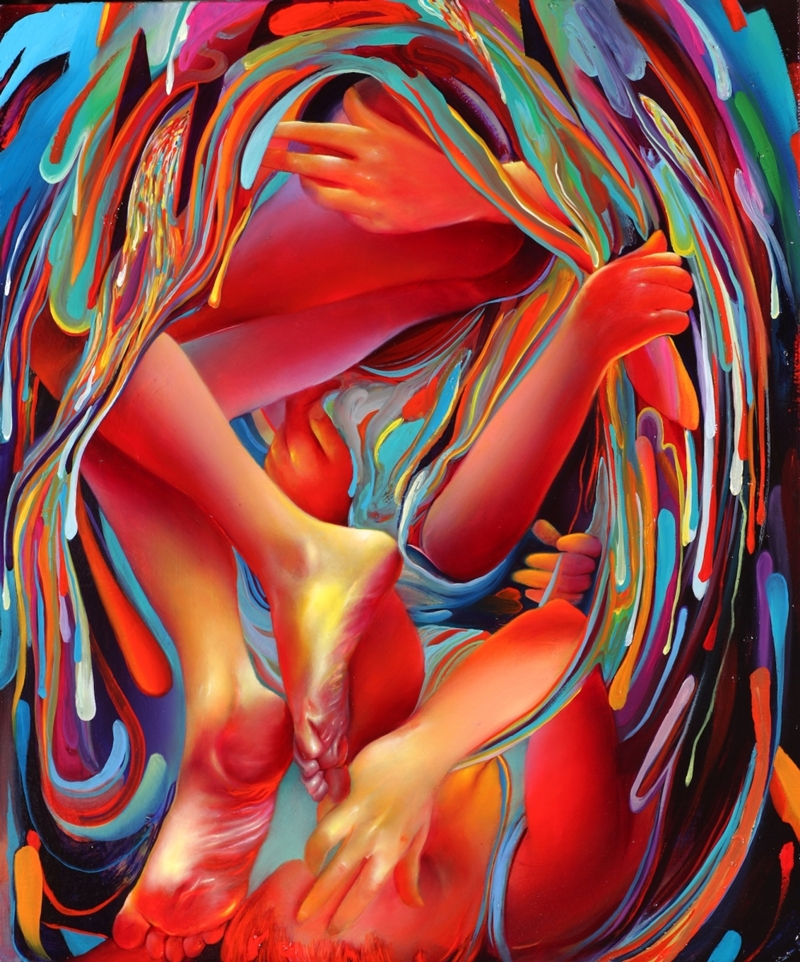.jpg)
Gregory Colbert, 1960 ~ Canadian photographer
.jpeg)
Henri Martin | Post-Impressionist painter
Henri Jean Guillaume Martin (1860-1943), French painter, was born in Toulouse.
His early works were devoted to poetic and allegorical themes reflecting his training at the École des Beaux-Arts in Toulouse. After winning the Grand Prix he moved to Paris in 1879 to study at the École des Beaux-Arts under Jean-Paul Laurens.
Martin exhibited at the Salon des Artistes Francais in Paris from 1880, winning a medal at the 1883 Salon.
His early works were devoted to poetic and allegorical themes reflecting his training at the École des Beaux-Arts in Toulouse. After winning the Grand Prix he moved to Paris in 1879 to study at the École des Beaux-Arts under Jean-Paul Laurens.
Martin exhibited at the Salon des Artistes Francais in Paris from 1880, winning a medal at the 1883 Salon.

Iain Faulkner, 1973 | Figurative / Romantic painter
Scottish painter Iain Faulkner was born in Glasgow where he was raised and educated. He graduated from Glasgow School of Art in 1996 with a BA (Honours) Degree in Fine Art.
From the onset of his professional career, the fashionable and trendy routes of contemporary and conceptual art, adopted by many of his peers, was not an option. He chose instead to follow the more difficult and demanding path of figurative painting wherein clear, concise yardsticks of competence, draughtsmanship and painterly skills can be measured and judged, warts and all.

Paolo and Francesca | Inferno, Canto V | The Divine Comedy
Francesca da Rimini or Francesca da Polenta (1255 - ca. 1285) was the daughter of Guido da Polenta, lord of Ravenna.
She was a historical contemporary of Dante Alighieri, who portrayed her as a character in the Divine Comedy.
Paolo Malatesta (c. 1246-1285) was the third son of Malatesta da Verucchio, lord of Rimini.
He is best known for the story of his affair with Francesca da Polenta, portrayed by Dante in a famous episode of his Inferno (Canto V). He was the brother of Giovanni (Gianciotto) and Malatestino Malatesta.
Auguste Rodin - Paolo e Francesca
Monumento a Dante in Piazza Santa Croce a Firenze, 1865
.jpg)
Giotto 1267-1337 ~ Gli affreschi
Giotto di Bondone, better known simply as Giotto, was an Italian painter and architect from Florence in the late Middle Ages. He is generally considered the first in a line of great artists who contributed to the Italian Renaissance. Giotto's contemporary Giovanni Villani wrote that Giotto was "the most sovereign master of painting in his time, who drew all his figures and their postures according to nature. And he was given a salary by the Comune of Florence in virtue of his talent and excellence".

Michael Page, 1979 ~ Pop Surrealism painter
Michael Page, American painter, art paints oil and acrylic paintings that are abstract and surreal with animals and bright colors. Living and working in San Francisco, CA, Page creates vibrant dreamscapes using eye-popping colors and a focus on the spirit that breathes inside every living organism, the Pneuma. With a trademark technique of using bold brush strokes and vibrant color palettes, Page’s paintings seem to jump off the canvas as they question new life, science, and the infinite variations of consciousness.
He has shown his work nationally and internationally throughout both Europe and the United States including the cities of Reykjavik, Berlin, Bristol, Rome and Montreal.
.jpg)
Dmitri Danish, 1966 | Venice Evening
Дмитрий Даниш, Ukrainian painter, known for working in the Impressionist style, was born in Kharkiv.
He was a natural artist from the start.
His mother, an artist herself, was the first to discover Dmitri's talent and began to teach him to draw and paint.
At age 12 he was accepted into a Kharkiv Art School, and by age 15 he was enrolled at the Kharkiv State Art College.

Rogier Van Der Weyden | Northern Renaissance painter
Rogier van der Weyden, original name Rogier de la Pasture (1399/1400, Tournai [Belgium] - 1464, Brussels), Northern Renaissance painter who, with the possible exception of Jan van Eyck, was the most influential northern European artist of his time.
Though most of his work was religious, he produced secular paintings (now lost) and some sensitive portraits.
Rogier was the son of a master cutler, and his childhood must have been spent in the comfortable surroundings of the rising class of merchants and craftsmen.
Iscriviti a:
Post (Atom)


